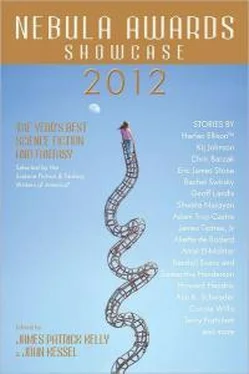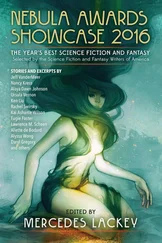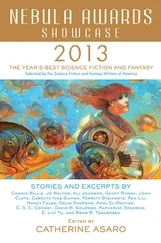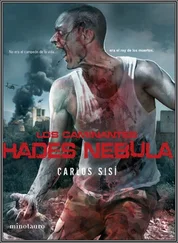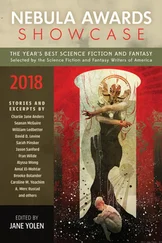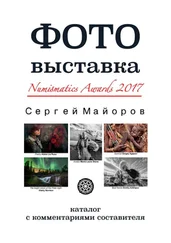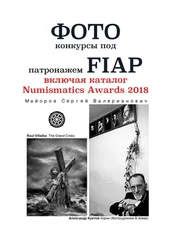Nebula Awards Showcase 2012
Здесь есть возможность читать онлайн «Nebula Awards Showcase 2012» весь текст электронной книги совершенно бесплатно (целиком полную версию без сокращений). В некоторых случаях можно слушать аудио, скачать через торрент в формате fb2 и присутствует краткое содержание. Год выпуска: 2012, ISBN: 2012, Издательство: Pyr, Жанр: Фантастика и фэнтези, на английском языке. Описание произведения, (предисловие) а так же отзывы посетителей доступны на портале библиотеки ЛибКат.
- Название:Nebula Awards Showcase 2012
- Автор:
- Издательство:Pyr
- Жанр:
- Год:2012
- ISBN:978-1-61614-619-1
- Рейтинг книги:3 / 5. Голосов: 1
-
Избранное:Добавить в избранное
- Отзывы:
-
Ваша оценка:
- 60
- 1
- 2
- 3
- 4
- 5
Nebula Awards Showcase 2012: краткое содержание, описание и аннотация
Предлагаем к чтению аннотацию, описание, краткое содержание или предисловие (зависит от того, что написал сам автор книги «Nebula Awards Showcase 2012»). Если вы не нашли необходимую информацию о книге — напишите в комментариях, мы постараемся отыскать её.
Nebula Awards Showcase 2012 — читать онлайн бесплатно полную книгу (весь текст) целиком
Ниже представлен текст книги, разбитый по страницам. Система сохранения места последней прочитанной страницы, позволяет с удобством читать онлайн бесплатно книгу «Nebula Awards Showcase 2012», без необходимости каждый раз заново искать на чём Вы остановились. Поставьте закладку, и сможете в любой момент перейти на страницу, на которой закончили чтение.
Интервал:
Закладка:
Cess was still working on the right front quadrant. “Sprang a leak,” he shouted over the rumble of tanks. “Lucky I brought my bicycle patch kit along. Don’t come any nearer! That cutter’s sharp.”
Ernest nodded and hoisted it over in front of where the tank’s other tread would be and started back toward the gate. “How many of these do you want?” he shouted to Cess.
“At least a dozen pair,” Cess shouted, “and some of them need to overlap. I think the fog’s beginning to lift.”
The fog was not beginning to lift. When he switched on his torch so he could return the needle to the beginning of the record, the phonograph was shrouded in mist. And even if it should lift, they wouldn’t be able to tell in this blackness. He looked at his watch. Two o’clock, and they still hadn’t inflated a tank. They were going to be stuck here forever.
Cess finally completed the mired tank and slogged across the field to the copse to do the other two, Ernest following with the cutter, making tread-tracks to indicate where the tanks had driven in under the trees.
Halfway there, the sound of tanks shut off. Damn, he’d forgotten to move the needle. He had to go all the way back across the pasture, start the record again, and he’d no sooner reached the cutter again than the fog did indeed lift. “I told you,” Cess said happily, and it immediately began to rain.
“The phonograph!” Cess cried, and Ernest had to fetch the umbrella and prop it over the phonograph, tying it to the tank’s rubber gun with rope.
The shower lasted till just before dawn, magnifying the mud and making the grass so slippery that Ernest fell down two more times, once racing to move the phonograph needle, which had stuck and was repeating the same three seconds of tank rumbling over and over, and the second time helping Cess repair yet another puncture. “But think of the war story you’ll have to tell your grandchildren!” Cess said as he wiped the mud off.
“I doubt whether I’ll ever have grandchildren,” Ernest said, spitting out mud. “I am beginning to doubt whether I’ll even survive this night.”
“Nonsense, the sun’ll be up any moment, and we’re nearly done here.” Cess leaned down so he could see the treadmarks, which Ernest had to admit looked very realistic. “Make two more tracks, and I’ll finish off this last tank. We’ll be home in time for breakfast.”
And in time for me to finish the articles and run them over to Sudbury by nine , he thought, aligning the tracker with the other treadmarks and pushing them down hard. Which would be good. He didn’t like the idea of those other articles sitting there for another week, even in a locked drawer. Now that he could partially see where he was going and didn’t need to stop and check his path with the torch every few feet, it should only take him twenty minutes to do the treads and load the lorry, and another three-quarters of an hour back to the castle. They should be there by seven at the latest, which should work.
But he’d only gone a few yards before Cess loomed out of the fog and tapped him on the shoulder. “The fog’s beginning to lift,” he said. “We’d best get out of here. I’ll finish off the tanks and you start on stowing the equipment.”
Cess was right; the fog was beginning to thin. Ernest could make out the vague shapes of trees, ghostly in the gray dawn, and across the field a fence and three black-and-white cows placidly chewing grass—luckily, on the far side of it.
Ernest folded up the tarp, untied the umbrella, carried them and the pump to the lorry, and came back for the cutter. He picked it up, decided there was no way he could carry it all the way across the field, set it down, pulled the cord to start it, and pushed it back, making one last track from just in front of the tank’s left tread to the edge of the field, and lugged it, limping, from there to the lorry. By the time he’d hoisted it up into the back, the fog was beginning to break up, tearing apart into long streamers which drifted like veils across the pasture, revealing the long line of treadmarks leading to the copse and the rear end of one imperfectly hidden tank peeking out from the leaves, with the other behind it. Even knowing how it had been done, it looked real, and he wasn’t fifteen thousand feet up. From that height, the deception would be perfect. Unless, of course, there was a phonograph standing in the middle of the pasture.
He started back for it, able to actually see where he was going for several yards at a time, but as he reached the tank, the fog closed in again, thicker than ever, cutting off everything—even the tank next to him. He shut the phonograph and fastened the clasps, then folded up the table. “Cess!” he called in what he thought was his general direction. “How are you coming along?” and the fog abruptly parted, like theatre curtains sweeping open, and he could see the copse of trees and the entire pasture.
And the bull. It stood halfway across the pasture, a huge shaggy brown creature with beady little eyes and enormous horns. It was looking at the tank.
“Hey! You there!” a voice called from the fence. “What do you think you’re doing in my pasture?” And Ernest turned instinctively to look at the farmer standing there. So did the bull. “Get those bloody tanks out of my pasture!” the farmer shouted, angrily jabbing the air with his finger.
The bull watched him, fascinated, for a moment, then swung his head back around. To look directly at Ernest.
“Raid in Progress”
Notice onstage in London theatre
1940
By midnight only Polly and the elderly, aristocratic gentleman who always gave her his Times were awake. He had draped his coat over his shoulders and was reading. Everyone else had nodded off, though only Lila and Viv and Mrs. Brightford’s little girls had lain down, Bess and Trot with their heads in their mother’s lap. The others sat drowsing on the bench or the floor, leaning back against the wall. Miss Hibbard had let go of her knitting, and her head had fallen forward onto her chest. The rector and Miss Laburnum were both snoring.
Polly was surprised. One of the things the contemps had complained about was lack of sleep due to the raids, and by midway through the Blitz many Londoners had abandoned the shelters and gone back to their own beds, more desperate for a good night’s sleep than they were frightened of the bombs. But this group didn’t seem bothered by the uncomfortable sleeping conditions or the noise, even though the raid was picking up in intensity again. The anti-aircraft gun in Kensington Gardens started up, and another wave of planes growled overhead.
She wondered if this was the wave of bombers which would hit John Lewis. No, they sounded nearer—Mayfair? It and Bloomsbury had both been hit as well as central London, and after they’d finished with Oxford Street, they’d hit Regent Street and the BBC studios. She’d better try to sleep while she could. She would need to start off early tomorrow morning, though she wondered if the department stores would even be open.
London businesses had prided themselves on remaining open throughout the Blitz, and Padgett’s and John Lewis had both managed to reopen after a few weeks. But what about the day after the bombing? Would the stores which hadn’t been damaged be open, or would the whole street be off-limits, like the area around St. Paul’s? And for how long? If I haven’t got a job by tomorrow night—
Of course they’ll be open, she thought. Think of all those window signs the Blitz was famous for: “Hitler can smash our windows, but he can’t match our prices,” and “It’s bomb marché in Oxford Street this week.” And that photograph of a woman reaching through a broken display window to feel the fabric of a frock. It might even be a good day to apply for a position. It would show the raids didn’t frighten her, and if some of the shopgirls weren’t able to make it into work because of bombed bus routes, the stores might hire her to fill in.
Читать дальшеИнтервал:
Закладка:
Похожие книги на «Nebula Awards Showcase 2012»
Представляем Вашему вниманию похожие книги на «Nebula Awards Showcase 2012» списком для выбора. Мы отобрали схожую по названию и смыслу литературу в надежде предоставить читателям больше вариантов отыскать новые, интересные, ещё непрочитанные произведения.
Обсуждение, отзывы о книге «Nebula Awards Showcase 2012» и просто собственные мнения читателей. Оставьте ваши комментарии, напишите, что Вы думаете о произведении, его смысле или главных героях. Укажите что конкретно понравилось, а что нет, и почему Вы так считаете.
